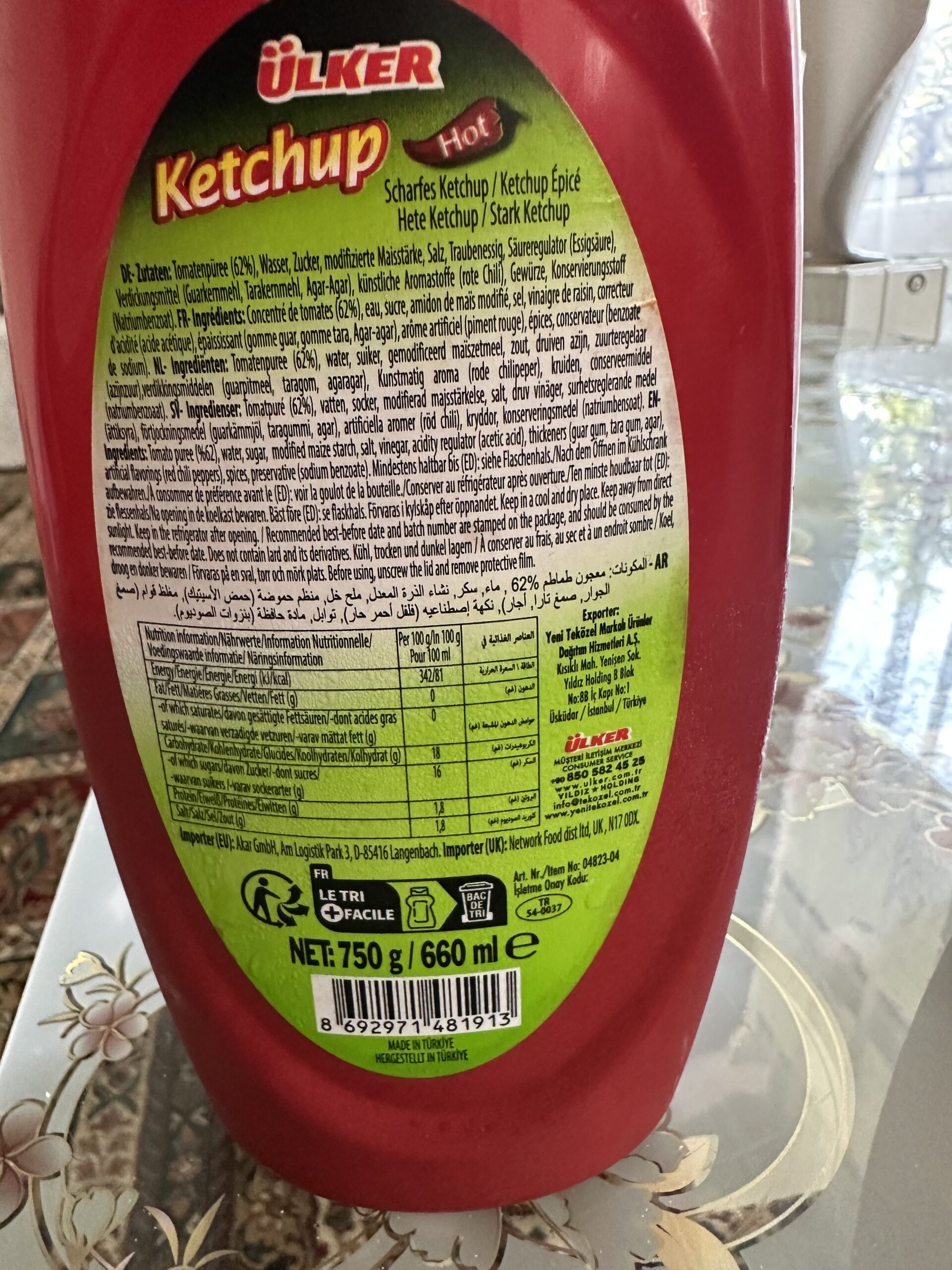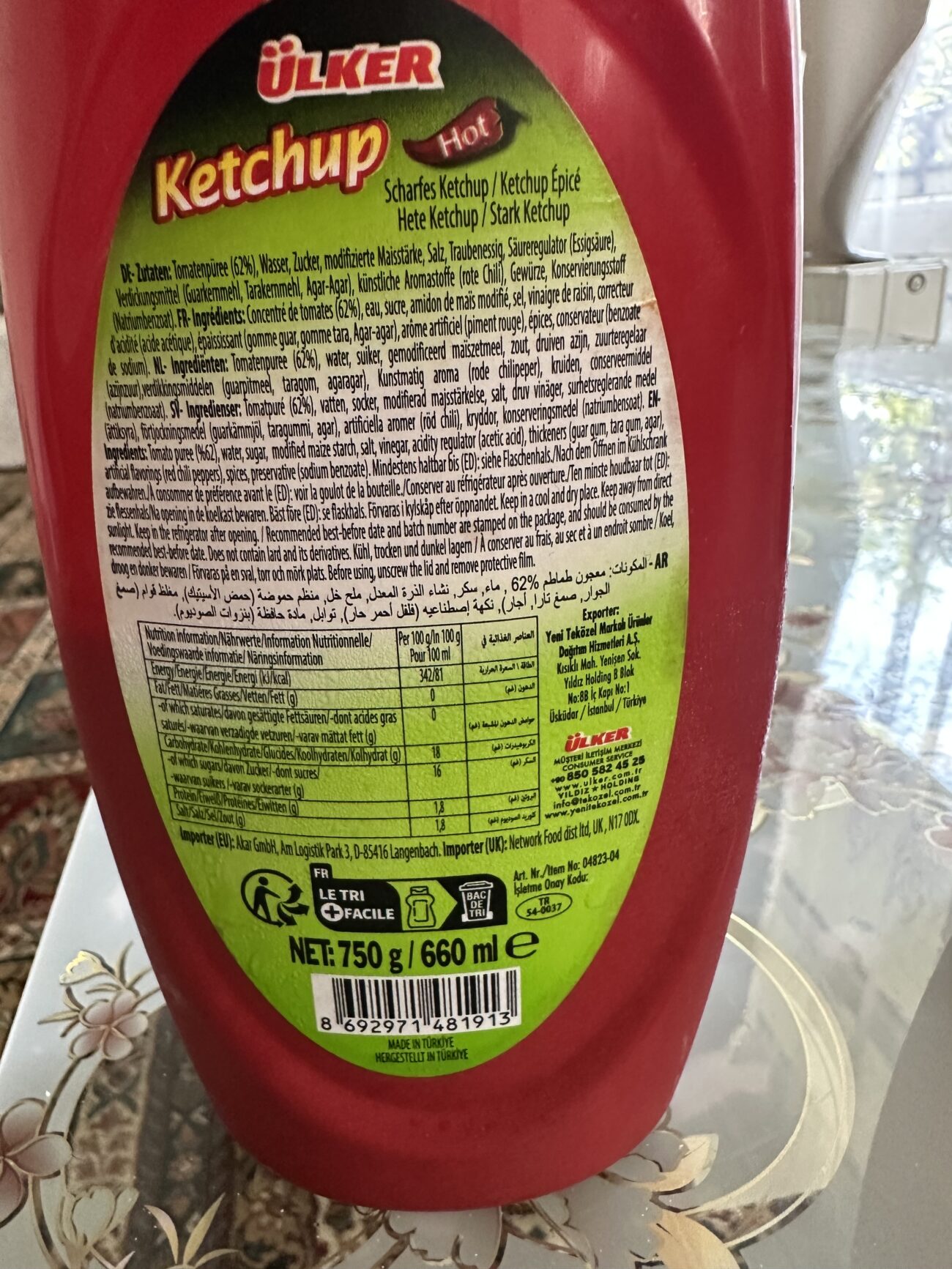
Barcode: 26202129
ketchup
HALAL
📝 Reason: All ingredients in this ketchup are plant-derived, minerals, or synthetic food additives confirmed as Halal by ingredient cross-check and the given Halal ECodes list. No Haram additives (E120, E124, E354, E999), meat, or alcohol-based products are in this formulation. Therefore, it is classified Halal as per Quran 5:3 and international Halal standards. (Sources: IFANCA, Halal Food Foundation, foodchemadditives.com)
🏷️ Category: Condiment
📄 Certificates: Hot, Le Tri Facile, Net: 750 G / 660 Ml, Made In Türkiye, Vegetarisch, Vegan
Ingredients:
Details
Understanding the Halal Status of Ketchup
Ketchup is a beloved condiment that finds its place on tables worldwide, but for many, its halal status is vital. This post explores the halal status of Ketchup, confirming its compliance with Islamic dietary laws. The Ketchup in question is entirely, as all its ingredients are plant-derived, minerals, or generally accepted synthetic food additives. No haram substances, such as meat or alcohol, are present in this formulation, making it a halal choice for consumption.
Ingredients Breakdown
Ketchup’s ingredients include:
- Tomato pureé: Made from pureed tomatoes and classified as halal.
- Water: Pure water is inherently halal.
- Sugar: Derived from plants, sugar is usually halal unless refined using non-halal processes, which is uncommon in this product.
- Modified maize starch: Derived from corn, it is halal unless treated with alcohol, which isn’t indicated here.
- Salt: A naturally occurring mineral, always halal.
- Grape vinegar (traubenessig): Halal once fermentation is complete, as alcohol is transformed into acetic acid.
- Acidity regulators: Generally consists of citric or acetic acid, all halal unless originating from haram sources.
- Thickeners: Both guar gum and tara gum are plant-derived thickeners and classified as halal.
- Sodium benzoate: Preservative considered halal by the ECode list.
- Spices: Including red chili peppers, which are halal as they are plant-derived.
- Artificial flavorings: Typically halal unless they contain alcohol.
Halal E-Numbers and Ingredients
Here’s a quick overview of some critical E-numbers and ingredients present in Ketchup and their halal status:
- Gum Guar: Always regarded as halal as it’s sourced from knowledgeable plant origin.
- Tara Gum: Halal, as obtained from the tara tree.
- Agar: A gelling agent derived from algae, always halal.
- Sodium Benzoate (E211): Confirmed halal as per several authoritative halal sources.
Certifications and Standards
Compliance with halal standards is pivotal for food safety and consumer confidence. In the case of Ketchup, the product follows various international halal guidelines as per Quran 5:3. This condiment does not include any of the common haram additives such as E120, E124, E354, or E999.
Furthermore, the manufacturing process plays a significant role, ensuring no cross-contamination with haram products. Various halal certifiers, including the International Foundation for Nutrition and Health (IFANCA), affirm that the ingredients cross-checked and approved align with the authenticated halal ECode list.
Brand and Category Context
This Ketchup belongs to the condiment category and is sourced from Türkiye, making it a well-accepted option for halal consumers globally. It is marketed as vegetarian and vegan, broadening its appeal beyond the halal demographic. Therefore, whether you are a strict halal adherent or simply seeking vegetarian options, this Ketchup provides a delicious addition to your meals.
Conclusion
In conclusion, the Ketchup examined is halal as all ingredients come from plant-based sources or are synthetically produced without altering their halal status. Consumers can enjoy this flavorful condiment with confidence, knowing that it meets international halal standards and adheres to Islamic dietary laws.

